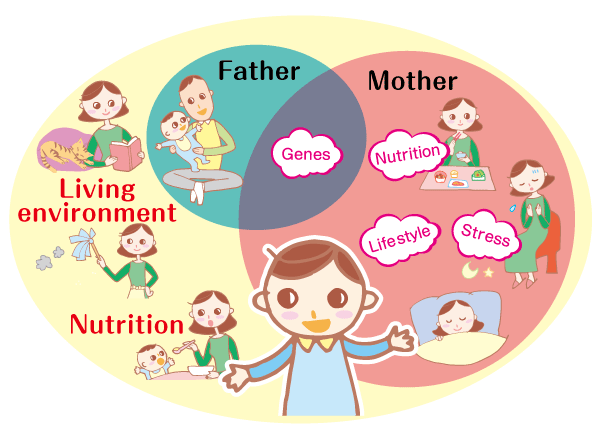What is “C-MACH?”
C-MACH is research on the environment surrounding children and their health condition that takes place across several years. It involves the participation of pregnant mothers and the fathers of those children.

Purpose of C-MACH
The aim of C-MACH is to conduct a research of the relationship between the surrounding environment of children (nutrition and lifestyle) from fetal period to adolescence as well as their genes with their health and development, and put the findings to use in preventing illness and developmental disorders.
In the last 50 years or so, our surrounding environment as well as our life-style have changed drastically.
While our life has become very convenient, an increasing number of children have been exhibiting problems with their physical and mental development, including lifestyle-related diseases, allergies and developmental disorders.
It is believed that the propensity of babies to develop such diseases in later life is related to the environment during fetal period and after they are born (nutrition and lifestyle) as well as to the genes that they possess.
In order to ensure that future generations will be born healthy and have enriched lives, it is important that we research the mechanisms behind illness and developmental disorders and identify the ways to prevent them.
With the cooperation of pregnant mothers and the fathers of those children, through C-MACH, the Center researches the relationship of the environment of children from fetal period to adolescence as well as their genes with the health condition of those children.

Ethical considerations regarding C-MACH
C-MACH was planned with consideration accorded to keeping participants from being subject to human rights violations or ethical issues. The survey has been reviewed and approved by the bioethics review committee at various universities and facilities.
Principal Investigator:Chisato Mori, Director, Center for Preventive Medical Sciences, Chiba University




